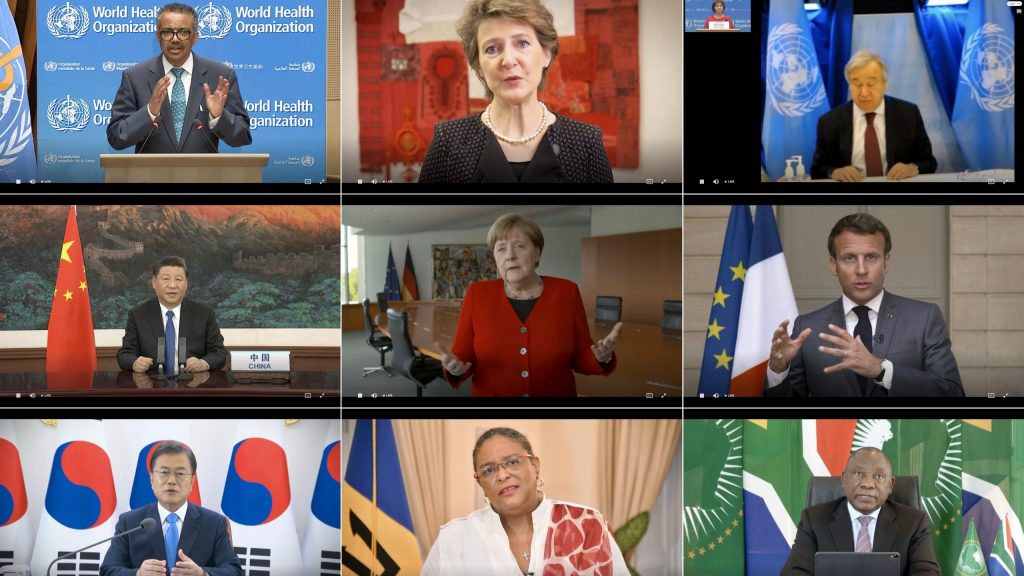
- ARAB NEWS
- 18 Jul 2025

When Chinese President Xi Jinping addressed the global assembly of the World Health Organization (WHO) this week, he stressed that a vaccine for the coronavirus disease (COVID-19) should be made available to all. This was in stark contrast to the controversy surrounding French pharmaceutical giant Sanofi, whose CEO Paul Hudson declared last week that any vaccine the company produced would be made available in America first because the US had contributed most to its development. Not so fast, responded French President Emmanuel Macron, insisting that he would not allow a French company to give priority to a foreign country in this manner. The company subsequently backtracked on its pledge.
We are smack bang in the middle of a controversy over whether vaccines and medications constitute global public goods or if their access should be controlled by countries or the companies that own the intellectual property.
This issue is often discussed in regard to super-expensive medications like Novartis’ spinal muscular atrophy drug Zolgensma, which costs a prohibitive $2.1 million, taking its accessibility well beyond what is affordable to health insurance schemes or national health care systems — let alone individual households. A decision by the company to give away 100 treatment cycles through a lottery did nothing to calm that debate.
Zolgensma is a specific drug for a specific and rare illness. Things become much more complicated when we are dealing with public health emergencies. The US, which has a whole raft of issues with the WHO, explicitly declined to support a resolution that would have allowed poor countries to ignore patents to gain access to COVID-19 vaccines or treatments. A particular bone of contention was that the motion referred to the World Trade Organization’s (WTO) 2001 Doha Declaration, which allows countries to overrule intellectual property rights in the case of a public health emergency. The UK, Japan and Switzerland are also said to have opposed the language referring to the Doha Declaration. The pharmaceutical industry is important to the economies of those three countries, just as it is in the US.
So we are back to the question of who should have ultimate control over access to medication: Companies, countries or the global public. There are good arguments for all three approaches.
The research and development of new drugs is very expensive, which means there is an economic need for companies to make a return on that investment. If they are not allowed to do so, they will not fund future research and development. Without groundbreaking new treatments for diseases, humanity as a whole will be worse off.
Meanwhile, countries have a fiduciary responsibility to look after their citizens. Public health is certainly part of that responsibility. Some countries in the developed world ensure access to health care for all, with the UK’s National Health Service being the poster child of that model. In others, like the US, health care is less accessible, especially for the poor. This being said, “health care nationalism” has certainly been a feature of the COVID-19 pandemic with regard to personal protective equipment, and it is bound to become more prominent once we have vaccines or antiviral drugs. Some countries may have a valid argument for demanding first dibs on a particular medication when research was partially funded by their taxpayers. The latest example of this was the UK’s AstraZeneca this week receiving more than $1 billion from the US Biomedical Advanced Research and Development Authority for its COVID-19 vaccine development scheme in conjunction with Oxford University.
The global public good argument is an excellent one, especially in times of a public health crisis. Relief from a pandemic should be made available to all of humanity, which is ultimately for the greater good. Aside from the humanitarian aspect, a pandemic cannot be contained in a globally interconnected world if it is allowed to spread rapidly in poorer countries. In other words, and in this specific case, making COVID-19 vaccines and antiviral drugs accessible to all is in the interest of humanity at large. This explains why ministers agreed to the WTO’s Doha Declaration in November 2001.
We are at the intersection of commercial interests, national interests and the global public good.
Cornelia Meyer
We are at the intersection of commercial interests, national interests and the global public good. Sadly, the first two tend to be better funded and self-interest tends to be more easily advocated than the third. It takes a lot of multilateral, interdisciplinary and multipolar negotiations, as well as time, before something is universally agreed on as a global public good. In the case of this pandemic, we lack the time. Multilateral mechanisms have also been undermined over the last few years and this is particularly evident in the current debate surrounding the WTO. It is hard for multilateral organizations to function without the support of the largest countries — and it may be impossible to do so with the explicit opposition of the world’s largest economy.
In the end, we can only hope that the global family of nations understands that it is in everybody’s interest for the pandemic to be contained worldwide. This may prove to be the strongest argument to make COVID-19 vaccines and antiviral drugs accessible to every human being on the planet. The road to get there will be not easy. There is not just a funding element to this, but a huge logistical angle too. Both will require the cooperation and leadership of companies, countries and multilateral organizations.